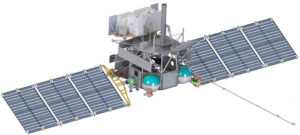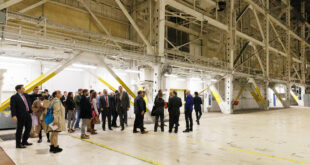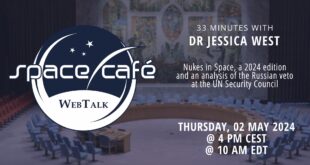
Arktika-M, the first Russian weather forecasting satellite for monitoring climate and the environment in the Arctic region is planned to be launched into a Molniya orbit in June 2019, according to Russian space industry officials who spoke to Sputnik, a Russian news outlet.
“The launch of the Soyuz-2.1b launch vehicle from the Baikonur cosmodrome with Fregat booster and the first hydrometeorological satellite Arktika-M is scheduled for June 2019”, an official said.
The sensors installed on the Arktika-M satellite will be similar to the Elekto-L series of geostationary meteorological satellites. Arktika-M will be placed in a highly elliptical orbit – also known as a Molniya orbit – which will allow it to collect meteorological and hydrological information about the state of the Earth’s polar regions that are poorly covered by the Electro-L meteorological satellites.
In a Molniya orbit, the Arktika-M will periodically move away from the Earth’s surface and take multi-scale images. It will have a rotation speed different from the Earth’s, so that its image-taking angle will change continuously.
After the launch of two Arktika-M satellites into a Molniya orbit, the Hydrometeorological Centre of Russia will continuously receive meteorological and environmental information about the atmosphere and the surface at the Earth’s polar regions. This will improve weather forecasting model accuracy and provide scientists a new stream of data to study global climate change.
A second Arktika-M satellite is scheduled to be launched in 2021. The federal space programme of Russia for 2016-2025 also includes plans to launch another three Arktika-M satellites in 2023, 2024, and 2025 respectively, but the contract for their production has not yet been concluded.
 SpaceWatch.Global An independent perspective on space
SpaceWatch.Global An independent perspective on space




